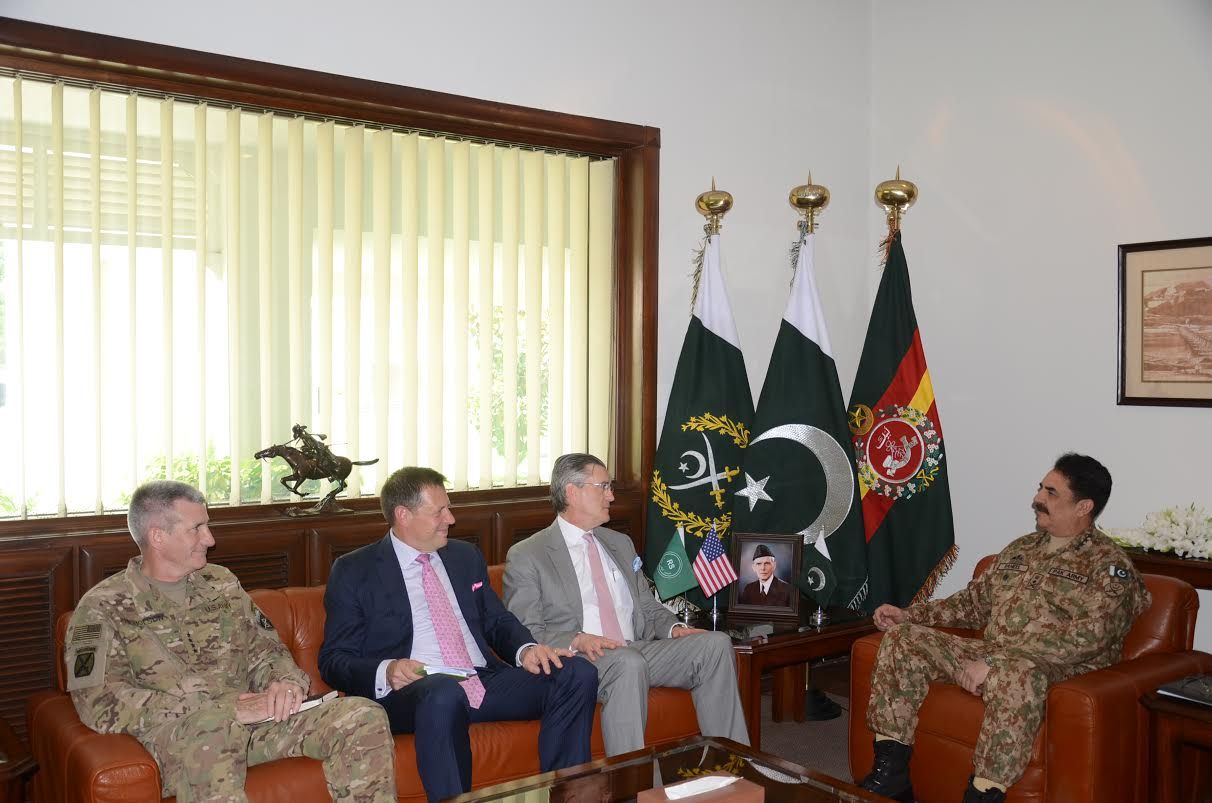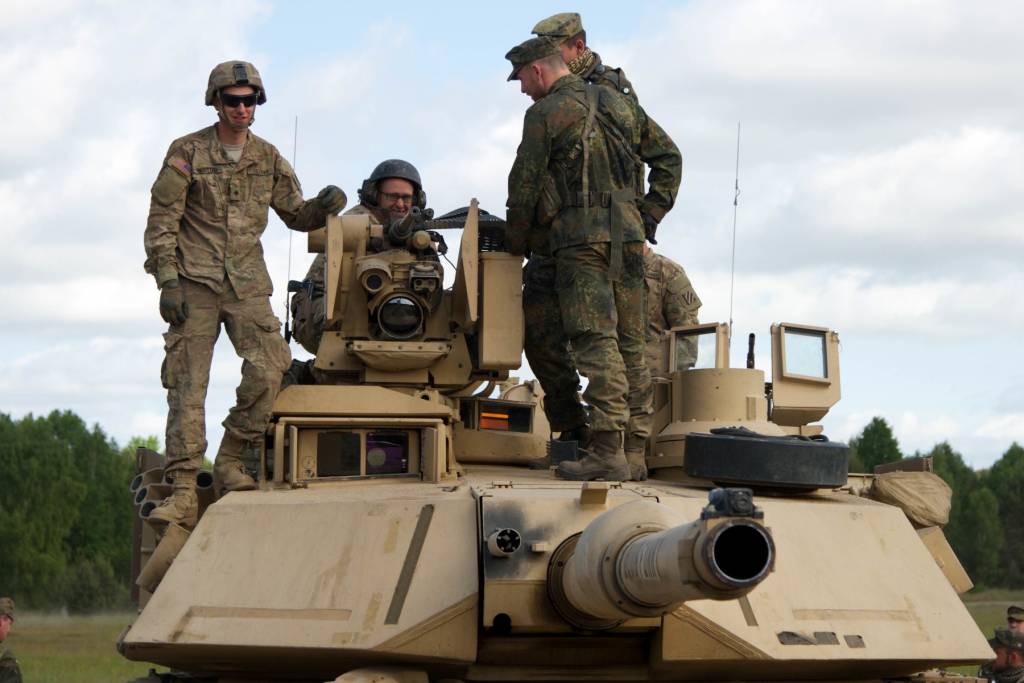Army Chief General Raheel Sharif, in a meeting with senior US officials at GHQ on Friday, raised the demand of targeting Tehreek-i-Taliban Pakistan (TTP) militants and their chief Mullah Fazlullah in their hideouts in Afghanistan.
Talking to Commander Resolute Support Mission in Afghanistan General John Nicholson and US Special Representative for Afghanistan and Pakistan Richard Olson, Gen Raheel said “Pakistan will not allow Indian and Afghan intelligence agencies to foment terrorism in the country”.
According to an ISPR communique, the regional security situation with particular reference to border management and peace and stability in Afghanistan in the post-May 21 US drone strike environment came under discussion during the meeting.
The army chief reaffirmed Pakistan’s commitment towards the war against terrorism and effective border management with Afghanistan in order to promote regional peace and stability.
Expressing his serious concern on the May 21 US drone strike in Balochistan ─ which had killed Afghan Taliban chief Mullah Mansour ─ and terming it a violation of Pakistan’s sovereignty, Gen Raheel highlighted how the drone strike negatively affected the mutual trust and respect between the two countries and the gains made during Pakistan’s own war on terror.
He told the visiting dignitaries that it is unfortunate that Pakistan is blamed for instability in Afghanistan, adding that Pakistan has always expressed its readiness to work for a long term peace process for Afghanistan under the Quadrilateral Coordination Group (QCG) framework.
Pakistan’s ISPR press release:
General John Nicholson, Commander Resolute Support Mission in Afghanistan and Ambassador Richard Olson, US Special Representative for Afghanistan and Pakistan called on General Raheel Sharif, Chief of Army Staff (COAS) at GHQ today.
Regional Security Situation, with particular reference to border management and peace and stability in Afghanistan in the post-21 May US drone strike environment came under discussion. Expressing his serious concern on the US drone strike in Balochistan as a violation of Pakistan’s sovereignty, COAS highlighted as to how it had impacted the mutual trust and respect and was counter productive in consolidating the gains of Operation Zarb-e-Azb. All efforts for durable peace in the region have to be synergized with shared commitment and responsibility in order to make them successful. COAS said that while Operation Zarb-e-Azb was launched against terrorists of all hues and sanctuaries of terrorists have been dismantled without discrimination, all stakeholders need to understand Pakistan’s challenges with regard to porous border, inter-tribal linkages and decades-old presence of over 3 million refugees. Blaming Pakistan for instability in Afghanistan is unfortunate.
Raising the demand of targeting TTP and Mullah Fazlullah in their bases in Afghanistan, COAS reiterated Pakistan’s resolve not to allow hostile intelligence agencies’ efforts, especially RAW and NDS, of fomenting terrorism. COAS reaffirmed the need for continuing harmonized efforts against terrorists and effective border management as ways to regional peace and stability. He further said Pakistan is committed to work for a long term peace process for Afghanistan under the QCG framework.










